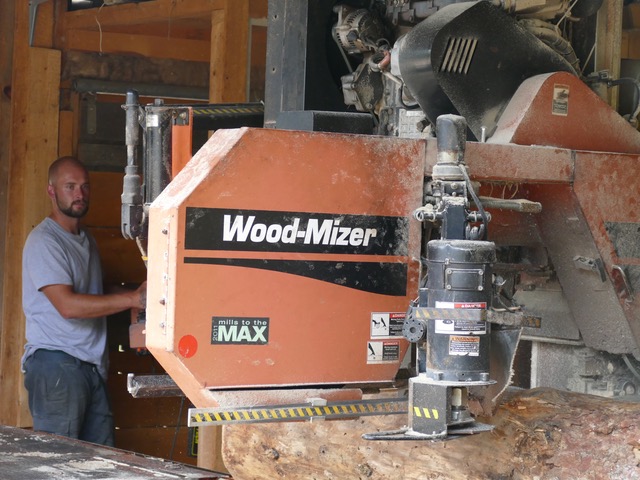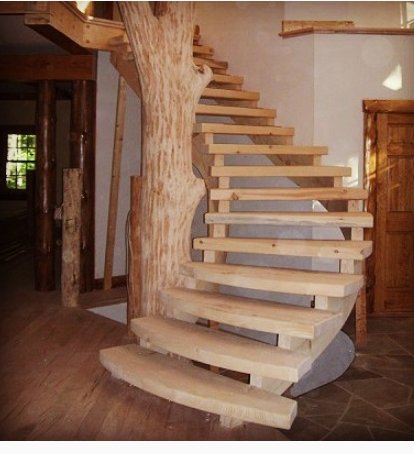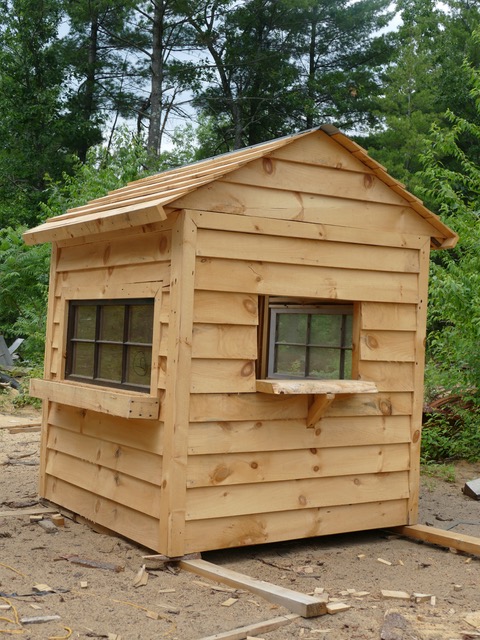
By Tim Rowland
There are two types of home-improvement projects: DIY and LSEDI, or Let Someone Else Do It. For those who make a market in Adirondack forestry products, both of these camps have kept business stable during the novel coronavirus outbreak.
In some cases, it’s been enough to keep business steady, but for others it’s actually provided a surge, much like has been seen in local agricultural circles.
“Things really picked up during the lockdown,” said Scott Phillips, owner of Adirondack LogWorks in Schroon Lake. Phillips builds Adirondack-style stairs, railings and furniture out of locally harvested pine and cedar.

When second-homeowners sensed a lockdown was coming, many came north ahead of their normal schedule so as not to be trapped in the cities. They brought their own groceries and in many cases self-quarantined for a couple of weeks, which gave them plenty of time to imagine their homes with some architectural tweaks.
When the shutdown came, jobs began piling up from people who wanted Phillips to enhance an entryway or redo a deck. “Even furniture took on a lot of new orders,” he said, to the point where it’s hard to get the suppliers of logs and lumber on the phone.
Others decided to tackle projects themselves, and with a greater awareness of locally sourced products, turned to a number of small sawmills that populate Adirondack hill and dale. Dave Warner Sr., owner of Wood Grain Sawmill in Keeseville, said business has held steady, and in some areas has picked up because of the pandemic. A big seller this spring has been planks for the construction of raised garden beds, as a wave of people have turned their attention to growing their own vegetables.
“People have gotten a little nervous about the food supply, so we’ve had requests for garden boxes and that kind of thing,” Warner said.

The pandemic has also increased the desire of people to connect with and support small, local operations instead of traveling to large supply stores and supermarkets and risking the crowds. That’s translated into sales of rough-cut lumber for home-improvement projects like barns and porches. “Everybody seems to want to support local businesses,” Warner said.
And some have turned into producers themselves. Those with forestland of their own have been more apt to tap maples or cut firewood, said Buck Beebe, owner of Beebe’s Sawmill & Farm near Port Henry. “The maple syrup market is flooded,” Beebe said, as forestry producers have to be flexible in identifying markets.
And this spring, for swayers, that has translated into infrastructure for people looking to raise their own food. Beebe said he’s seen an interest in lumber for raised beds as well, along with chicken coops and even barns. “A lot of people are talking about raising beef for themselves,” he said.
There has also been interest in other mill products, much of it related to custom work, such as siding for housing and slabs of interesting wood to be turned into table tops. Paradoxically, the more robust rough-cut lumber produced by local sawmills is not used for living space because it lacks the government-inspector seal of approval, said Beebe’s son Jalen.
In all though, it’s kept Beebe’s mill a bit more busy than on average — although he’s not sure how long the fire in people to raise their own food will last. “As soon as the raccoons get into their corn, they’ll learn,” he said.
About the author: Tim Rowland is a freelance writer raising belted Galloway beef cattle in Jay, New York.
~ Make sure you check out other unique forestry businesses near you by going to the browse page and searching for ‘Forestry Products’! We have several amazing local forestry businesses to learn more about!
